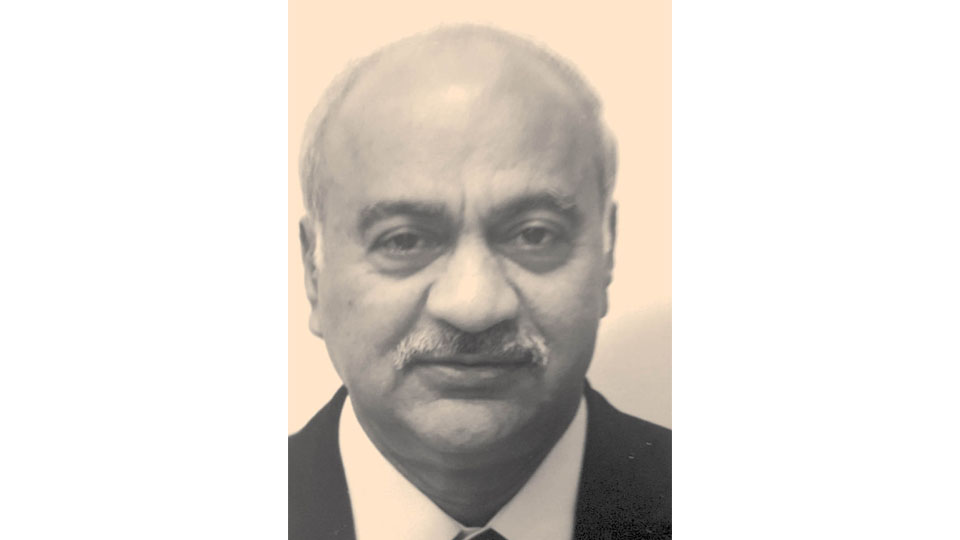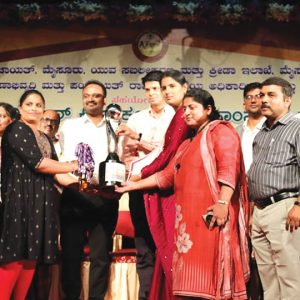By Ravi Joshi, Formerly in the Cabinet Secretariat
We all live by stories, stories told by others and stories that we tell ourselves and to others. Stories are the medium through which we relate to reality. When we talk of reality, we get into facts, those objects we perceive through our sensory organs and that which is independent of our mind and imagination.
And stories give us joy, cheer us and are a source of happiness. They also cause grief and could be a source of misery. Stories give meaning to our lives; at times they elevate us by giving us a higher objective and a goal in life. Valmiki Ramayana and Vyasa Mahabharata are also stories but have acquired a position of sanctity, the sacred texts in contrast to secular literature.
Our mind constantly seeks cogency and an ordered universe, hence the need for stories. Give a man three facts and he will build a narrative around it, a story that seems plausible and even credible. Journalists belong to that profession. Historians are a notch higher. They build stories around dead facts, bring them to life and influence the way you look at present facts. The more plausible and credible historians create a dominant narrative for a community and provide a ‘collective imagination’ that unites a people and gives them a common identity.
Talking about imagination, it may be useful to quote Benedict Anderson’s famous definition of nation as an ‘imagined community’: “It is an imagined political community — and imagined as both inherently limited and sovereign.” It is important to note here that Anderson calls it a ‘political community’ as distinct from a ‘civil society.’ More about that later.
It would be useful to look at another definition provided by Prof. Ernest Gellner of Cambridge University who rules that “Nationalism is not the awakening of a nation to self-consciousness: it invents nations where they do not exist.” The contrast between the view of Anderson and Gellner is that while the former posits nationhood to ‘imagining and ‘creation,’ the latter is keen to show that ‘nationalism’ masquerades under false pretences and he equates ‘invention’ to fabrication and falsity. In this way, he implies that ‘true’ communities exist which can be advantageously juxtaposed to nations. In fact, all communities larger than primordial villages of face-to-face contact, where everyone knew everyone else, are imagined communities, says Anderson.
As to how this collective imagination is formed, Anderson suggests that it was the invention of the printing press in 1450 by Johannes Gutenberg and the first edition of the printed Bible was central to it. ‘It has been estimated that in the 40-odd years between the publication of the Gutenberg Bible and the close of the fifteenth century, more than 20 million printed volumes were produced in Europe. From the year 1500 to 1600, the number of books printed reached between 150 – 200 million. In a sense, the book was the first modern-style mass-produced industrial product.
Next comes the newspaper — ‘merely an extreme form of the book, a book sold on a colossal scale but of ephemeral popularity. Anderson adds insightfully that “the obsolescence of the newspaper on the morrow of its printing… creates this extra-ordinary mass ceremony: the almost precisely simultaneous consumption, ‘imagining’ of the newspaper-as-fiction. We know that morning and evening editions will overwhelmingly be consumed between this hour and that, only on this day, not that. Yet each communicant understands the ceremony that he performs is being replicated simultaneously by thousands or millions of others whose existence he is confident, yet whose identity he has not the slightest notion.”
Furthermore, this ceremony is incessantly repeated at daily intervals throughout the year across the length and breadth of the State or the country. “What more vivid figure for the secular, historically clocked imagined community can be envisioned,” queries Anderson.
Today, newspapers are replaced by TV and digital news channels where hundreds of millions consume the events of the day that either reinforce their collective imagination or fragment them. The latest invention, social media, is a different platform where millions ‘participate not only as consumers of knowledge but also as producers.’ This creates new challenges to the way knowledge is consumed or shared or ‘imagined’ in a community. Knowledge is no longer coming from one centralised source or not even from a dozen recognisable sources but thousands or millions of sources, whose identity and reliability are unknown and that fragments our perception of reality. Knowledge becomes chaotic. Truth viewed from thousands of multi-faceted angles merely becomes diverse narratives or mere opinions. You take your pick, the one that fits with your biases. Facts do not matter anymore or do they?
There is another school that builds stories without any facts. They don’t need facts. They consider all facts as opinions, as a narrative of a particular story-teller. Here we are treading on a slippery path.
Bertrand Russel, who as a young scholar always sought a Science that was not based on assumptions, finally concluded that Mathematics is the most accurate Science. Later, he found that even in Mathematics he must start with certain assumptions as a given. Otherwise, he could not proceed further. This is probably the ultimate limitation of a finite mind seeking answers from an infinite universe.
But if basic assumptions lead us to knowledge that can be subsequently verified and proven correct, like Einstein’s theories, then the assumptions too are valid. So, we proceed, by picking up empirically verifiable facts, on a journey to understand who we are, where we are and where do we go from here. This applies in the physical world as it does in the social and political worlds too.
By constantly questioning and verifying our information and assumptions on the hard rock of facts, we may still be able to navigate our way in this post-Truth world.
Note: If Science and Mathematics must start with certain assumptions to proceed further, why not Theology start with the assumption there is a spiritual power and God? In Theology, unfortunately, despite many prophets and enlightened masters like Buddha and Mahaveer, the assumption about spiritual power or God DOES NOT lead us to knowledge that can be subsequently verified like it happened in the case of Einstein’s Theory of Relativity which was proven correct. No wonder Einstein himself was an agnostic while his friend ‘Father of Atom Bomb’ Oppenheimer was an atheist. — KBG








Recent Comments